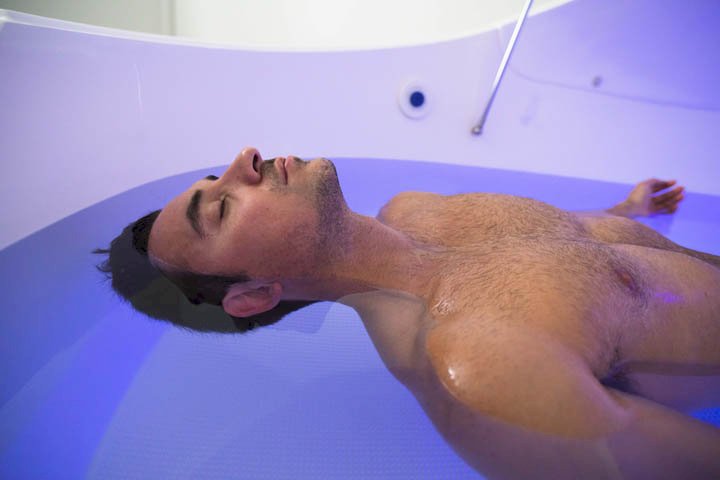Floatation Thery for Athletes

With some of the world’s best professional athletes taking to ‘floating’ in recent years, it’s clear Floatation Tank Therapy has the world by storm. 2008 Beijing Olympics British Silver Medallist Phillips Idowu used floatation therapy weekly for a back injury. American NFL quarterback Tom Brady owns his own float tank, as does Manchester United Midfielder, Wayne Rooney.
Floatation tanks, also referred to as sensory-deprivation tanks, are oblong-shaped pods filled with water heated to skin temperature. They’re saturated with thousands of pounds of Epsom salt and pitch-black when shut. Decades of extensive scientific research into Float Tanks has suggested the mental and physical benefits are significant – and this has been enough for many athletes to dive right in.
Gravity-free
The density of water in a Floatation-REST tank gives the feeling of complete weightlessness. The high doses of Epsom salt and water creates an environment where the body can float without effort. The outcome is that every single muscle and joint is given the opportunity to relax. The forces of gravity pulling on the musculoskeletal and nervous systems mean there is no pain and no strain, and the dissolution of all tension.
Manage pain
In 2004, a study in the of journal of European Health Psychology found lower blood pressure and lower levels of cortisol were found as a result of floating. Furthermore, a study in the Journal of Applied Sport Psychology showed that time in the tank was able to lower muscle tension. Floating has also been scientifically proven to reduce lactic acid levels in the blood. This simultaneously works to increase the release of endorphins, a natural pain reliever within the body. Collectively, these physiological benefits work to help individuals manage pain, on both a short and long-term basis.
Rest
Even the most experienced athletes need rest. Intense training schedules can cause stress and many athletes struggle with the pressure of performing. This stress can have various impacts on the brain and the body, including negatively affecting sleep and spurring on anxiety. Floatation Tank Therapy promotes relaxation, encouraging athletes to quiet the mind. In many cases, athletes find their return to sport is restored with energy new-found motivation to perform.
Recovery
Rest is one thing but taking the time to truly recover is another. For professional athletes, injury is prevalent amongst those who do not take the time to recover properly. A study by the National Library of Medicine was performed to whether a one hour floatation session would aid in the recovery process after maximal eccentric knee extensions and flexions. The results suggested that floatation-REST appears to have a significant impact on blood lactate and perceived pain compared with a 1-hour passive recovery session.
Although there are a number of proven ways how Floatation Tank Therapy can positively impact an athlete’s performance, it’s important to note that floating is not just for professional athletes. From rest and recovery to making the most of mental and physical benefits, floating is for any individual looking to achieve equilibrium within their body.
Share
What's Your Reaction?
 Like
0
Like
0
 Dislike
0
Dislike
0
 Love
0
Love
0
 Funny
0
Funny
0
 Angry
0
Angry
0
 Sad
0
Sad
0
 Wow
0
Wow
0

















